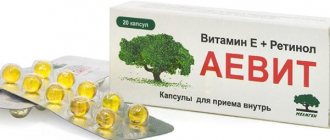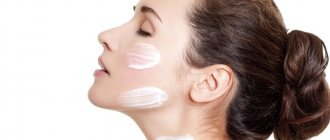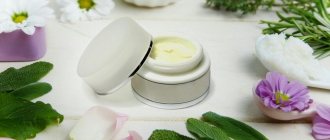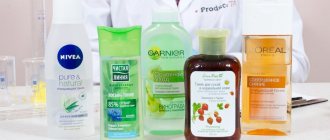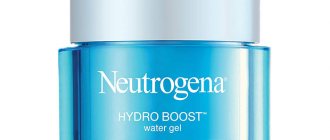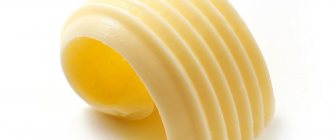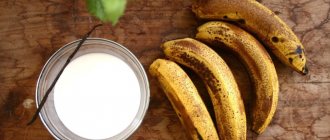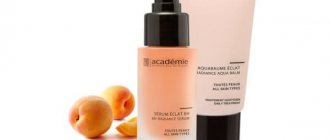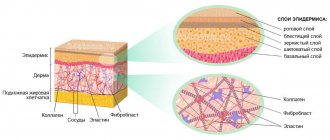Updated: 02/19/2021 18:42:25
Expert: Daria Alekseevna Litvinova
*Review of the best according to the editors of expertology.ru. About the selection criteria. This material is subjective in nature, does not constitute advertising and does not serve as a purchase guide. Before purchasing, consultation with a specialist is required.
Poor nutrition, stress, bad habits and lack of sleep contribute to the loss of elasticity, firmness and freshness of the skin. To improve your appearance, it is important to properly care for your body, especially your face. If the effect of creams and masks is no longer enough, you should turn to the help of well-known vitamins. Taking them helps to improve the health of the body, remove toxins, and smooth out wrinkles.
You shouldn't buy expensive pills to rejuvenate your face. Pharmacies offer many cheap vitamins that are important for the skin. We have selected the 10 most popular drugs, which are praised by domestic customers, and displayed them in the form of a rating.
Why are vitamins good for the skin of the face and body?
Many vitamins have a direct impact on the quality and condition of the skin of the face and body: their deficiency or excess can be expressed by dryness, peeling, irritation, redness, decreased tone and loss of radiance and freshness of the epidermis.
To maintain the beauty and health of the skin, dermatologists recommend replenishing its vitamin and mineral balance both from the inside and outside, using appropriate cosmetics with active formulas. Scientists have proven that external use of vitamin complexes in sufficient quantities provides the skin of the face and body with all the necessary substances. Vitamins are necessary for the skin at any age.
Modern cosmetic formulas are created on the basis of advanced research, which allows the use of technologies for crushing, combining and preserving active ingredients to achieve the best results. Skin vitamins used in home care cosmetics solve several basic problems:
- Nourish and enrich cells with microelements, improve the appearance of the skin.
- Moisturize and soften the epidermis, strengthen the hydrolipid mantle.
- Helps increase the synthesis of natural collagen and elastin.
- Reduce visible signs of premature aging and prevent the appearance of new ones (the appearance of wrinkles, pigmentation, decreased skin elasticity).
- They have an antioxidant and detoxifying effect, helping skin cells fight the damaging effects of free radicals.
- Strengthen the epidermis and protect its barrier functions.
- Helps fight imperfections and traces of acne (blackheads, pimples).
- Regulates sebum production and reduces oily shine on the face.
EXTRA CARE
Beauty vitamins are a special series of organic substances that have different chemical structures, formulas and properties, and they have only one thing in common - they are responsible for skin health. Creams with vitamins help replenish the deficiency of beneficial components in the skin, protect it from free radicals and delay the appearance of signs of aging. When choosing products with vitamins, consider your skin type and its needs.
What vitamins are needed for beauty, youth and healthy skin?
A single vitamin or a complex of several of them in the basis of cosmetic formulas is designed to solve various problems of different skin types at any age. There are more than 10 vitamins that will help maintain skin tone and health. Here is a rating of the best vitamins for the skin of the face and body, which are most often found in cosmetics.
Vitamin A
Vitamin A derivatives (retinoids) are one of the most popular antioxidant vitamins found in cosmetology. Retinol is responsible for cell renewal, accelerates their regeneration processes, and is widely used in the care of oily, problematic, as well as mature skin. Vitamin A effectively evens out the tone and texture of the skin, restoring its softness, radiance and elasticity. Retinol is photosensitive and has a pronounced exfoliating effect, so in parallel with it, dermatologists recommend using sunscreen or day cream with SPF. Vitamin A deficiency can cause a decrease in protective hydrolipidic properties, elasticity and firmness, causing dryness, flaking, thickening and loss of skin radiance.
B vitamins
The B vitamin complex consists of 11 different substances, the most common in cosmetology of which are: vitamin B1 (thiamine), vitamin B2 (riboflavin), B3 (niacinamide), B5 (panthenol), vitamin B6 (pyridoxine), B7 (biotin) , B9 (folic acid), B10 (H1, para-aminobenzoic acid), Vitamin B12 (cyanocobalamin). All of the listed B vitamins have different, but equally essential effects on the skin: from cell division and respiration, to protecting and strengthening the barrier functions of the skin and reducing the negative effects of exposure to UV rays, and are responsible for lipid and protein metabolism.
Vitamin C
Vitamin C (ascorbic acid) is another essential antioxidant for beautiful skin. Vitamin C stimulates collagen synthesis, protects the skin from premature aging, evens out tone (fights wrinkles, age spots and acne marks) and facial contours, moisturizes, tightens pores, reduces oily shine, and has an anti-inflammatory effect. Vitamin C is photosensitive to ultraviolet radiation, so always use creams with SPF along with it. A lack of vitamin C can manifest itself in the form of rashes against the background of oily problem skin, dryness, and peeling.
Vitamin D
Calciferol or vitamin D, known as the sunshine vitamin, is necessary to strengthen cell membranes and reduce the process of lipid oxidation. Up to 90% of vitamin D is synthesized in the skin under the influence of UV rays, so it is rarely included in cosmetics. With its deficiency, the face acquires a tired, dull color, dark circles appear under the eyes, dryness, flaking of the skin.
Vitamin E
Vitamin E or tocopherol is another antioxidant, without which the skin becomes dull, its turgor and moisture decrease. Tocopherol resists free radicals, protects the skin from premature aging, promotes the synthesis of collagen and elastin, which are responsible for skin tightening, restores its elasticity, nourishes, moisturizes, smoothes, accelerates the healing of damage, strengthens the hydrolipid mantle. A lot of vitamin E is found in plant oils and extracts. Often used in the treatment of skin problems such as dermatitis, seborrhea, eczema.
Vitamin F
The popular name for vitamin F is linoleic acid or Omega-6 - an essential vitamin for dry and sensitive skin prone to imperfections. Quickly relieves dryness and flaking, soothes and softens irritated skin, and restores tissue elasticity. Vitamin F is indispensable in care formulas during the cold season, as it helps the skin resist temperature changes, strengthening its protective properties.
Vitamin K
Vitamin K promotes the speedy healing of bruises and mechanical damage to the skin (abrasions, wounds, burns). Thanks to the improvement of microcirculation, it is able to minimize the severity of rosacea (vascular network), eliminates dark circles under the eyes, and also evens out scars and stagnant spots (post-acne marks), scars.
Vitamin N
Known as thioctic and alpha lipoic acid, it is a powerful antioxidant that prevents oxidative stress in the skin and has powerful anti-inflammatory and protective properties. Vitamin N is often found in anti-aging formulas, prevents glycation, restores firmness and elasticity to the skin, and protects vitamins E and C from the damaging effects of free radicals. Reduces the risk of irritation, suitable for dry sensitive skin.
Vitamin P
Along with vitamin C, Vitamin P or rutin also has a powerful antioxidant effect, has a pronounced protective effect, and improves skin condition. Vitamin P strengthens blood vessels, prevents rosacea, minimizes redness, and is suitable for caring for skin with rosacea. It is important to remember that vitamin P hypovitaminosis can cause an exacerbation of acne, and a deficiency of the substance affects the condition of the vascular wall: a characteristic blue discoloration of tissues and spider veins appear.
Vitamin PP
Nicotinic acid or vitamin PP stimulates the regeneration processes of skin cells, improves microcirculation of the skin, eliminates sagging, relieves inflammation and prevents transepidermal moisture loss, improves skin tone and texture, reduces the first signs of age-related changes: wrinkles and pigmentation. Also suitable for caring for oily problem skin, controlling the activity of the sebaceous glands and sebum synthesis.
Beta keratin
Another antioxidant vitamin responsible for moisturizing and softening the skin is beta keratin, which can also be found in hair masks. The component used in skin creams helps strengthen and protect the epidermis from the negative effects of ultraviolet radiation and photoaging; it is found in sunscreens. Beta keratin is a source of vitamin A.
VITAMIN F FOR PROTECTION AGAINST DRY AND PEAKING, RESTORING THE BARRIER FUNCTIONS OF THE SKIN
Vitamin F (from the English fat - fat) is a combination of three fatty acids - linoleic, linolenic and arachidonic. Vitamin F cream is a rare case when fat is beneficial. The main sources of vitamin F - flaxseed, hemp and poppy seed oil - have disappeared from our diet. Together with ceramides and cholesterol, fatty acids form a natural protective barrier of the stratum corneum of the skin, which prevents the penetration of allergens and toxins from the outside and protects the skin from dehydration. And if you have dry or atopic skin, then such a cream will restore the damaged barrier and eliminate the symptoms of peeling, tightness and irritation of the skin.
Vitamin F semi-bold cream helps replenish the deficiency of fatty acids, due to which the barrier functions of the skin are restored, moisture loss is reduced, and after 2 weeks the skin returns to softness and a healthy appearance [1].
Naturally occurring Vitamin F, derived from argan, almond, grapeseed, evening primrose and sunflower oils, helps restore the skin barrier, reducing moisture loss. Calendula extract has a bactericidal and anti-inflammatory effect, yarrow extract soothes the skin. The cream does not contain dyes or allergens and is suitable for dry and atopic skin from the first day of life.
What vitamins are needed for various skin problems?
If you have a specific skin problem, use a product based on certain nutritional complexes designed to correct various skin imperfections. Let's look at what imperfections it is recommended to use formulas with the correct set of components. Top best vitamins for the skin for its different needs:
- Anti-wrinkle (for youthful skin) Retinol (vitamin A), ascorbic acid (vitamin C), vitamin D, vitamin E, niacinamide (vitamin B3), vitamin F, vitamin N, vitamins P, PP, beta-kerotene.
- Against dryness (to moisturize the skin) Vitamin A, vitamins B1, B6, B7, vitamin C, vitamin E, vitamin F, beta-keratin.
- For sagging (for elasticity and firmness of the skin) Vitamin A, vitamin C, vitamins B1, B2, B9, vitamin F, vitamin PP.
- For regeneration and healing Vitamin A, vitamin C, vitamins B2, B5, B7, vitamin PP.
- For acne and blackheads Vitamin A, vitamin C, vitamin E, vitamins B1, B2, B3, B12.
The Best Single Vitamins for Wrinkles
The following nutrients have succeeded in the fight against wrinkles: vitamin C, vitamin D, vitamin E, folic acid and others. Imported manufacturers specialize in producing high-quality mono drugs that contain them in fairly high therapeutic dosages.
Solgar Ester-C Plus Vitamin C, 500 mg
Rating: 4.9
The American brand Solgar has developed a pH-neutral and gastrointestinal-friendly supplement, Ester-C Plus Vitamin C. This product contains 500 mg of calcium ascorbate. Metabolites of vitamin C in ether-C have a positive effect on the retention of ascorbic acid in cells. This complex also contains citrus bioflavonoids, extracts from rose hips and acerola berries.
Ester-C Plus from Solgar is available in the form of white capsules. They reach almost 2 cm in length, but they are thin, do not stick to the throat and are swallowed with almost no problems. The vitamins are packaged in dark glass bottles of 100 or 250 pieces. The manufacturer recommends taking this dietary supplement 1 capsule 2 times a day. But given the high content of vitamin C - 500 mg (therapeutic dose), many take this remedy only once a day, in the morning after breakfast.
Many people praise this dietary supplement in their reviews for its gentle effect on the digestive tract. This product perfectly strengthens the immune system and relieves chronic fatigue syndrome. Since this vitamin increases collagen synthesis, after 1-2 weeks of using this product, the skin looks more toned, fine wrinkles and manifestations of rosacea become less noticeable.
Advantages
- soft product with low acidity;
- capsules do not cause difficulty in swallowing;
- perfectly strengthens the immune system;
- relieves chronic fatigue;
- makes the skin more toned;
- smoothes out small expression wrinkles.
Flaws
- Allergic reactions cannot be ruled out.
When does vitamin deficiency occur?
Vitamin deficiency, or vitamin deficiency, can occur at any age, but children, pregnant women and the elderly are most susceptible to it. Often the skin reacts to a lack or excess of nutrients with increased dryness, peeling, and irritation, which can appear on any part of the body: legs, arms, back, chest and head.
The lack of certain substances is seasonal, for example, in the cold season (autumn and winter), the risk of vitamin deficiency increases due to a decrease in the consumption of fresh vegetables and fruits enriched with vitamins and minerals. Accordingly, in summer and spring their consumption increases and the body replenishes the vitamin deficiency. Adhering to strict diets and food restrictions, the skin also suffers from vitamin deficiency, which affects its appearance.
How metabolism and skin are connected
The interaction in this case is multi-level: part of gas exchange, skin respiration, water and salt metabolism are carried out, as well as skin functions - carbon dioxide, intermediate carbohydrate, fat, protein metabolism. The exchange of vitamins and minerals - the skin and subcutaneous fat tissue are again connected, and the volume of processes carried out is quite a bit inferior to what the muscles and liver process. The PFA layer is one of the most reliable storage depots for accumulated nutritional compounds: these are fat-soluble, that is, lipophilic vitamins A/D/E/K.
Don’t forget about the accumulation/release of water by the skin - any liquid medium is an unconditionally valuable material for the metabolism of any substances, a way to remove toxic metabolites from the body. The condition of the skin often serves as a clue when taking anamnesis, since it is this organ that performs preliminary, intermediate metabolism.
Disruption of any part of metabolism invariably affects the quality of the skin:
- Acne, acne, furunculosis, necrobiosis lipoidica, lipidosis and other similar manifestations are evidence of a metabolic disorder of fats and carbohydrates;
- Porphyria with age spots as a symptom, albinism, strong odor of sweat, Kwashiorkor (pronounced redness), amyloidosis - protein imbalance;
- Vitamin, mineral, amino acid imbalance - neurodermatitis, eczema, mycoses, psoriasis, dry skin, cracks, “sticking”, irritation, hyperpigmentation, premature ptosis (loss of elasticity), etc.
The condition of the skin is affected by both hypovitaminosis - a lack of various vitamins - and their excess volume: hypervitaminosis. Excess vitamins are typical for fat-soluble vitamins, since they accumulate in tissues, and one of the metabolic reactions to exceeding recommended doses is a change in the quality of the skin - redness, itching, and the appearance of irritated areas. This reaction to an overdose of vitamins can appear on any part of the skin or part of the body.
Is it correct to believe that the need for vitamins, replenished taking into account the state of health, will help restore the quality of the skin if the cause of the deterioration is metabolic disorders?
Partly.
The biochemistry of health is metabolism, but it depends both on genetics and on our lifestyle: nutrition, physical activity, mental balance, stress resistance, bad habits. It is hardly possible to significantly influence metabolism with vitamins alone: no convincing studies have been conducted yet. Achieving a healthy skin condition and sufficient effectiveness of all its functionality can be achieved in a comprehensive manner by influencing metabolism, changing lifestyle, and nutritional discipline. But the daily need for vitamins in this case definitely plays an important role.
How can you compensate for the lack of vitamins?
Vitamins enter the human body with food in insufficient quantities to fully support organs. Therefore, in order for the skin to remain healthy, fresh, moisturized and youthful longer, an integrated approach is needed: a balanced diet, consumption of biologically active supplements to the daily diet, and a beauty routine enriched with vitamins.
- Cosmetics with vitamins The most highly concentrated formulas are face creams and serums. The compositions of these products can combine several vitamins at once or have a mono-vitamin base. The composition should be selected based on the type, condition and needs of the skin.
- Cosmetic procedures Aesthetic procedures based on injections, for example, biorevitalization, mesotherapy, involve the delivery of a vitamin complex with hyaluronic acid to the deep dermal layers. Alternative non-invasive methods of skin vitaminization are electroporation and non-injection mesotherapy.
- Vitamin-mineral complexes Dietary supplements enrich the body with nutrients, in particular, they help nourish the skin with vitamins from the inside and make up for the lack of useful components coming from food.
- Nutrition The easiest way to fortify the body is a balanced diet. Enrich your diet with fresh fruits and vegetables, herbs, berries, nuts, cereals - these products are high in nutritional components and have a positive effect on the skin.
Why do wrinkles appear?
Creases and grooves on the skin can appear for various reasons. The main ones include the following:
- Geriatric processes
: Elastin and collagen are produced in less quantity as a person gets older. And without these substances it is extremely difficult to retain moisture in the skin and maintain its elasticity. - Ultraviolet radiation from the sun
. Under its influence, pathological connective tissue is formed in the skin, and the strength of capillaries is reduced. This leads to loss of moisture, loss of skin elasticity and premature appearance of wrinkles. - Excessive emotionality
. The more a person’s facial expressions are developed, the more the tissues on his face become tense. Collagen fibers cannot keep up with such changes and begin to break down over time. Visually, this is manifested by the appearance of superficial wrinkles, which in the future become deep. - Stress
. In this state, the body produces a lot of adrenaline and glucocorticoids. They are mostly carried to the internal organs. And the skin ceases to receive sufficient nutrients. They become flabby and acquire an earthy tint. - Climatic conditions
. Wrinkles form especially quickly in those who often change from a temperate climate to a tropical or subtropical one. - Bad habits
. Nicotine, alcohol or drugs have a detrimental effect on the entire body, including the skin.
The first shallow wrinkles make themselves felt closer to 30 years. And further aging of the skin is accompanied by a decrease in collagen production. Against this background, wrinkles become deeper and even begin to merge with each other.
Vitamin A -
Vitamin A can most often be found in anti-aging cosmetics, because with long-term course use (about 24-36 weeks) it has the following effect on the skin...
- gives the skin an even color and texture,
- stimulates collagen production,
- reduces the depth of wrinkles and fine lines,
- reduces pigment spots,
- and also fights acne (blackheads and pimples).
There are several forms of vitamin A that have varying effectiveness. These include: retinol, retinol esters (for example, retinol acetate), retinaldehyde, trans-retinoic acid, 13 cis-retinoic acid, etc.
Products based on pure retinol, and especially retinol acetate, will be much weaker than products containing retinaldehyde or retinoic acid. However, it is retinol that is most often used in anti-aging cosmetics, because it causes significantly less skin irritation. Unfortunately, choosing a high-quality cosmetic product with retinol is very difficult, because... Many manufacturers use cheap vitamin A substances (retinol esters) rather than pure retinol or retinaldehyde.
Products based on retinoic acid will most strongly stimulate collagen synthesis and reduce the depth of wrinkles, however, as we have already said, they cause severe skin irritation (dryness, redness, itching), especially at the beginning of use. Anti-wrinkle products based on retinoic acid include:
- Tretinoin,
- Isotretinoin
- Retin-A.
Examples of high-quality creams and serums with retinol -
For more information about the effect of retinol on facial skin, how to choose the right cosmetics with retinol, what concentration these products should have, as well as the rating of the best products with retinol, read the following articles:
- “Rating of the best anti-aging cosmetics with retinol”
- “How to properly use cosmetics with retinol on the skin of the face”

